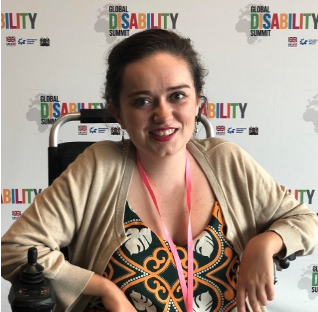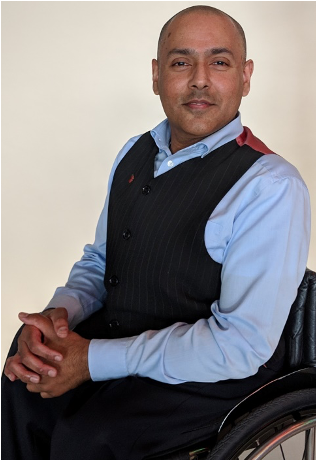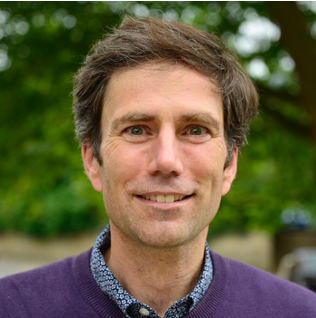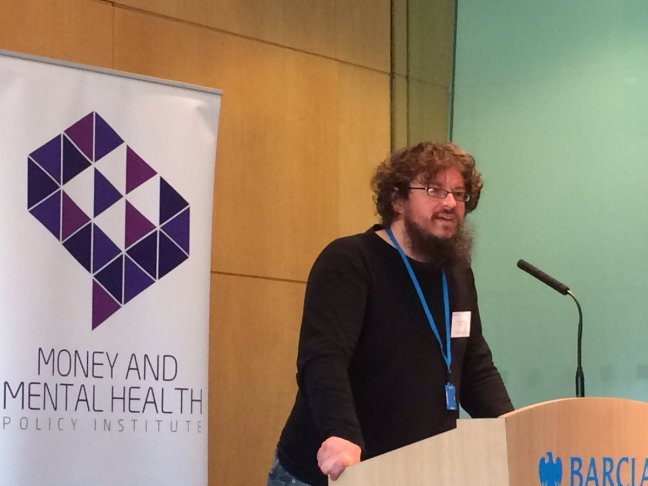Webinar: Disability in the Context of the Coronavirus Pandemic
Notes & Changes
Please note that this is a virtual event taking place via Zoom. If you are interested in attending, please register for the event on Eventbrite. Once you register, you will receive automatic email notifications 48 hours and 2 hours before the event with the Zoom invitation. Click on the orange 'View Now' button in the notification emails to access the Zoom meeting link, ID and password and direct yourself to the webinar. While joining the meeting, use your full name as registered on Eventbrite in order to be admitted.
Please also note that this event will be recorded, with the exception of any live audience questions.
This event is co-organized by the Oxford Disability Law and Policy Project.
Never has teaching and research on disability law and policy been more important in legal education. The Covid-19 pandemic has led to far reaching changes to the law affecting disabled people in the UK, from ‘shielding’ the vulnerable to changes to legislation under the Coronavirus Act 2020. The latter has altered the number of professionals needed to make a hospital order under the 1983 Mental Health Act and led to “easements” on the requirements on local authorities to provide care for disabled people under the Care Act 2014. National charities have been explicit about the discriminatory impact of government policy in their handling of the pandemic.
After ten years of austerity, this tumultuous context creates an even greater imperative to look forward and develop a vision for disability rights for the next generation. We urgently need to find ways to prevent inequality from becoming starker and to protect the dignity and human rights of disabled people in the context of the global coronavirus pandemic. This vision must reflect disability’s intersection with other protected characteristics, digital inclusion and climate change.
Prof Catherine O'Regan, University of Oxford will deliver introductory remarks and Marie Tidball, Chair of the Oxford Disability Law and Policy Project will chair the panel.
An audio recording of this event is available to listen to on Soundcloud
Panellists:
1. Lindsay Lee, Embold Health - "Disability and the Public Health Response to COVID-19"

Lindsay Lee is currently a healthcare data analyst at Embold Health. She was formerly a technical officer at the World Health Organization, where she supported the organization’s Disability Programme. She helped develop WHO’s guidance on protecting people with disability amid the COVID-19 outbreak. She is an alumna of the University of Oxford, with a Master of Public Policy from the Blavatnik School of Government and an MSc in Applied Statistics.
2. Dr Brian Sloan, University of Cambridge - "‘Easing’ Duties and Making Dignity Difficult: COVID-19 and the Care Act 2014"

Brian Sloan is a Fellow and Director of Studies in Law at Robinson College, Cambridge, where he teaches Family Law, Equity and Land Law. He read for his BA in Law and his LLM at Robinson, and his PhD at Gonville and Caius College in Cambridge. His research interests include formal and informal care, and public and private approaches to care, and their impact on human and property rights. Brian’s books include: Informal Carers and Private Law (Hart Publishing, 2013, a winner of a University of Cambridge Yorke Prize); Spaces of Care (ed with Loraine Gelsthorpe and Perveez Mody, Hart Publishing, 2020); and Landmark Cases in Succession Law (ed, Hart Publishing, 2019). Brian’s recent papers include ‘Adult Social Care and Property Rights’, ‘The “Social Contract”, Care and Inheritance in England and Hong Kong’; ‘Charges for Charges: Home Sales under the Care Act 2014’; and ‘Trusts and Anti-Avoidance under the Care Act 2014’.
3. Kamran Mallick, Disability Rights UK - "Restricted: Access to Supermarket Deliveries for Disabled People not on the Government’s Shielded List"

Kamran has worked in the voluntary sector for over 23 years and for 15 years running user led organisations. He worked for Aspire and as CEO of Action on Disability. Since 2017 he has been CEO of Disability Rights UK. He has served on various boards of 3rd sector organisations and was also a member of Transport for London’s Independent Disability Advisory Group for 3 years. He is currently on the Independent Disability Advisory Group for Gatwick Airport.
Kamran contracted polio as a child and is a wheelchair user. His experiences at both special and mainstream schools showed him that inclusive education for all children is essential. He is driven to make sure younger disabled people have better opportunities than he did. At Action on Disability, he transformed its youth service to mainstream settings and supporting inclusive activities. He built up a programme of supported internships for young people with learning difficulties, ensuring that they had real opportunities to work. He secured the long-term viability of the charity by negotiating a purpose built office funded by the social housing above.
Kamran is listed in the Shaw Trusts 2018 Power 100 list of Britain’s most influential disabled people. He was the runner up in the Vodafone Diversity Campaigner award 2017 and winner of Celebrating Diversity award from London Borough of Hammersmith & Fulham’s in their inaugural Civic Honour awards 2017. He was recognised on Green Park's 2019 BAME 100 Business Leaders index.
Board positions: Current - Lyric Theatre, Wheels for Wellbeing, Lloyds Bank Foundation. Past: Inclusion London, Candoco Dance Company.
4. Professor Jonathan Herring, University of Oxford - "Shielding the Vulnerable from the Coronavirus"

Jonathan Herring is DW Wolfe-Clarendon Fellow in Law at Exeter College, Oxford University and Professor of Law at the Law Faculty, Oxford University. He has written on family law, medical law, criminal law and legal issues surrounding care and vulnerability. His books include: Law and The Relational Self (CUP, 2019); Vulnerability, Childhood and the Law (Springer, 2018); Vulnerable Adults and the Law (2016), Caring and the Law (2014) Older People in Law and Society (OUP, 2009); European Human Rights and Family Law (Hart, 2010) (With Shazia Choudhry); Medical Law and Ethics (OUP 2020); Criminal Law, (Oxford University Press 2020); Family Law (Pearson, 2018); and The Woman Who Tickled Too Much (Pearson, 2009).
5. Dr Sara Ryan, University of Oxford - "What Unexpected Light a Pandemic Shines: Families, Learning Disability and ‘Soft' Eugenics"

Dr Sara Ryan is a Senior Research Lead at the University of Oxford. A sociologist and activist, her work focuses on learning disability, autism and social justice. She has published widely in international journals and has written a book about the preventable death of her son, Connor Sparrowhawk, in an NHS ‘assessment and treatment’ unit. Sara is currently leading social care related projects focusing on the flourishing lives of learning disabled people and experiences of older carers planning for the future.
6. Dan Holloway, Futures Thinking Network, The Oxford Research Centre for the Humanities - "The Messages aren’t Mixed: How Covid Communications have Clarified Society’s Erasure of its Mentally Ill and Neurodivergent Citizens"

Dan Holloway is a writer, researcher, and mental health activist. He is currently a member of the Money and Mental Health Policy Institute’s Advisory Board and recently worked on the government review of the Debt and Mental Health Evidence Form which led to GPs scrapping their fee for writing on behalf of vulnerable consumers. Dan spoke at the 2017 Oxford Disability Lecture and is a regular speaker on mental health and finance. He has also worked inside and outside of Oxford for more than a decade on creating workplaces where mentally ill and neurodivergent staff can flourish. Dan is a member of Oxford’s Futures Thinking Network. His main research interest is the way that communications, policy, and activism erase disabled people and their needs.
7. Professor Anna Lawson, University of Leeds - "Inclusive Services and Public Functions: Remembering the Anticipatory Reasonable Adjustment Duty under the Equality Act 2010"

Anna Lawson is a professor in the School of Law, where she has worked since 1990. Professor Lawson is also the director of the University-wide interdisciplinary Centre for Disability Studies and co-ordinator of the Law School’s Disability Law Hub. Anna’s academic interest in disability and law is rooted in her own experience of life as a disabled person. Anna is committed to working with disabled people, researchers with different disciplinary backgrounds and other stakeholders to tackle the persistent forms of disadvantage and exclusion experienced by disabled people all over the world. Anna has held trustee and advisory positions in a range of local, national and international disabled people’s and human rights organisations and regularly advises policy-makers, governments and intergovernmental organisations. Anna acted as expert advisor on accessibility for the Council of Europe in connection with its Disability Strategy 2017-2023; and was a special advisor to the House of Commons’ Women and Equalities Committee in connection with its inquiry into Disability and the Built Environment 2016-2017. Anna is a member of the Equality and Human Rights Commission’s Disability Advisory Committee and in 2016 was awarded the international Bob Hepple Memorial Prize by the Equal Rights Trust and the Industrial Law Society in recognition of my contribution to disability equality. In 2017, Anna became an honorary Master of the Bench at Middle Temple.

